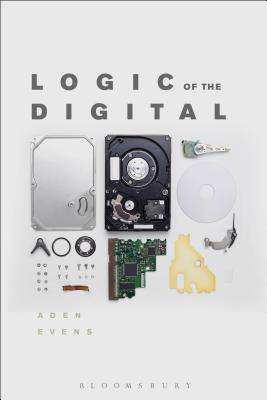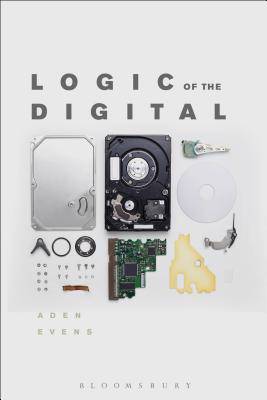
- Retrait gratuit dans votre magasin Club
- 7.000.000 titres dans notre catalogue
- Payer en toute sécurité
- Toujours un magasin près de chez vous
- Retrait gratuit dans votre magasin Club
- 7.000.0000 titres dans notre catalogue
- Payer en toute sécurité
- Toujours un magasin près de chez vous
Description
Building a foundational understanding of the digital, Logic of the Digital reveals a unique digital ontology. Beginning from formal and technical characteristics, especially the binary code at the core of all digital technologies, Aden Evens traces the pathways along which the digital domain of abstract logic encounters the material, human world. How does a code using only 0s and 1s give rise to the vast range of applications and information that constitutes a great and growing portion of our world?
Evens' analysis shows how any encounter between the actual and the digital must cross an ontological divide, a gap between the productive materiality of the human world and the reductive abstraction of the binary code. Logic of the Digital examines the distortions of this ontological crossing, considering the formal abstraction that persists in exemplary digital technologies and techniques such as the mouse, the Web, the graphical user interface, and the development of software. One crucial motive for this research lies in the paradoxical issue of creativity in relation to digital technologies: the ontology of abstraction leaves little room for the unpredictable or accidental that is essential to creativity, but digital technologies are nevertheless patently creative. Evens inquires into the mechanisms by which the ostensibly sterile binary code can lend itself to such fecund cultural production. Through clarification of the digital's ontological foundation, Evens points to a significant threat to creativity lurking in the nature of the digital and so generates a basis for an ethics of digital practice.
Examining the bits that give the digital its ontology, exploring the potentials and limitations of programming, and using gaming as an ideal test of digital possibility, Logic of the Digital guides future practices and shapes academic research in the digital.
Evens' analysis shows how any encounter between the actual and the digital must cross an ontological divide, a gap between the productive materiality of the human world and the reductive abstraction of the binary code. Logic of the Digital examines the distortions of this ontological crossing, considering the formal abstraction that persists in exemplary digital technologies and techniques such as the mouse, the Web, the graphical user interface, and the development of software. One crucial motive for this research lies in the paradoxical issue of creativity in relation to digital technologies: the ontology of abstraction leaves little room for the unpredictable or accidental that is essential to creativity, but digital technologies are nevertheless patently creative. Evens inquires into the mechanisms by which the ostensibly sterile binary code can lend itself to such fecund cultural production. Through clarification of the digital's ontological foundation, Evens points to a significant threat to creativity lurking in the nature of the digital and so generates a basis for an ethics of digital practice.
Examining the bits that give the digital its ontology, exploring the potentials and limitations of programming, and using gaming as an ideal test of digital possibility, Logic of the Digital guides future practices and shapes academic research in the digital.
Spécifications
Parties prenantes
- Auteur(s) :
- Editeur:
Contenu
- Nombre de pages :
- 192
- Langue:
- Anglais
Caractéristiques
- EAN:
- 9781350027473
- Date de parution :
- 23-03-17
- Format:
- Livre broché
- Format numérique:
- Trade paperback (VS)
- Dimensions :
- 156 mm x 234 mm
- Poids :
- 276 g

Les avis
Nous publions uniquement les avis qui respectent les conditions requises. Consultez nos conditions pour les avis.






